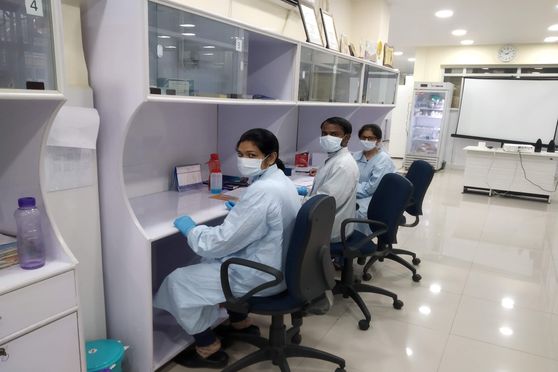BHU scientists research ways to cure chronic wounds


A team of scientists at Banaras Hindu University has conducted an important study that would benefit those suffering from chronic wounds, particularly with diabetic foot ulcers.
The team, in its study, found out that wounds that took months to years to heal could be cured in a matter of days to months. The findings of the study have been published in the National Center for Biotechnology Information, National Institutes of Health, United States.
Led by Gopal Nath of department of Microbiology, Institute of Medical Sciences, BHU,Gopal Nath, the team of scientists comprised of SK Bhartiya, VK Shukla, Pooja Gupta, Harishankar Singh, Dev Raj Patel, Rajesh Kumar, Rina Prasad, and Subhas Lalkarn etc.
A wound is defined as a breach in the skin or other body tissues due to injury. An acute wound is defined as a recent break that is yet to progress through sequential stages of healing. Those wounds where the normal healing process is stalled either due to underlying pathology (vascular and diabetes etc.) or infection beyond 3 months is defined as a chronic wound. While chronic wounds always get infected, contaminated/ dirty wounds are reasonably susceptible to infection. Infection with antibiotic-resistant bacteria and biofilm formation are critical factors halting the standard healing progress.
These wounds cause significant psychological and physical morbidity, e.g., increased pain leading to loss of function and mobility; distress, anxiety, depression, social isolation; and amputation, even death. Chronic wounds are considered a global problem. The direct medical cost of skin infections only in the United States (US) is approximately USD 75 billion, whereas USD 25 billion of this amount is used for chronic wound treatment.
Traditional chronic wound treatment strategies (e.g., compression, warming, vacuum-assisted closure device, irrigation) are often successful in healing wounds. Still, many wounds have been observed recalcitrant to these treatments, leading to persistence and recurrent infections. Both infections (caused by multidrug-resistant strains) and subsequent biofilm formation are the primary cause of the persistence of the wounds because conventional antibiotic therapy does not work. Search for alternatives to antibiotics has now become a compulsion.
Fortunately, bacteriophage therapy is a reemerging solution to antibiotic-resistant bacteria. Bacteriophages exhibit numerous potential advantages as an alternative antimicrobial therapy for treating MDR bacterial infection. The advantages include clinical safety, bactericidal activity, increased concentration where needed, negligible disturbance to the microbiome, biofilm degrading activity, ease and rapidity in isolation and cost-effectiveness of pharmaceutical formulations. In addition, the phages are known to penetrate poorly vascularized tissues and have been seen to be poor in inducing immunological response. Most notably, “phages are the only medicine that multiplies”.
The scientists carried out phage therapy of acute and chronic infected wounds in animals and clinical studies. It was shown efficacy against Pseudomonas aeruginosa in a mice wound model. Furthermore, they evaluated the efficacy of phage cocktails in animal models’ acute and chronic osteomyelitis caused by methicillin-resistant Staphylococcus aureus. Moreover, they also observed biofilm eradication from K wire in rabbits' wound infection model.